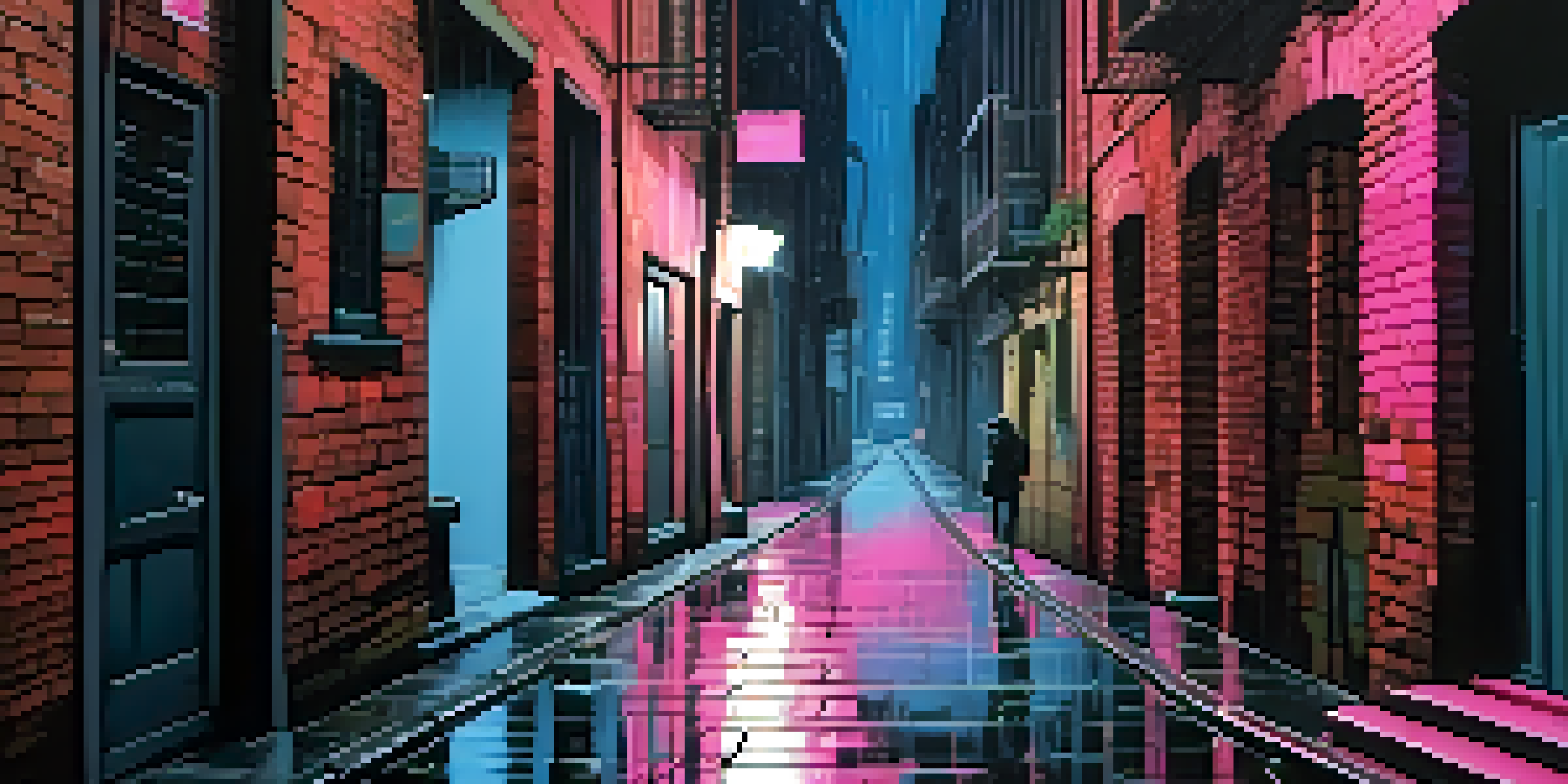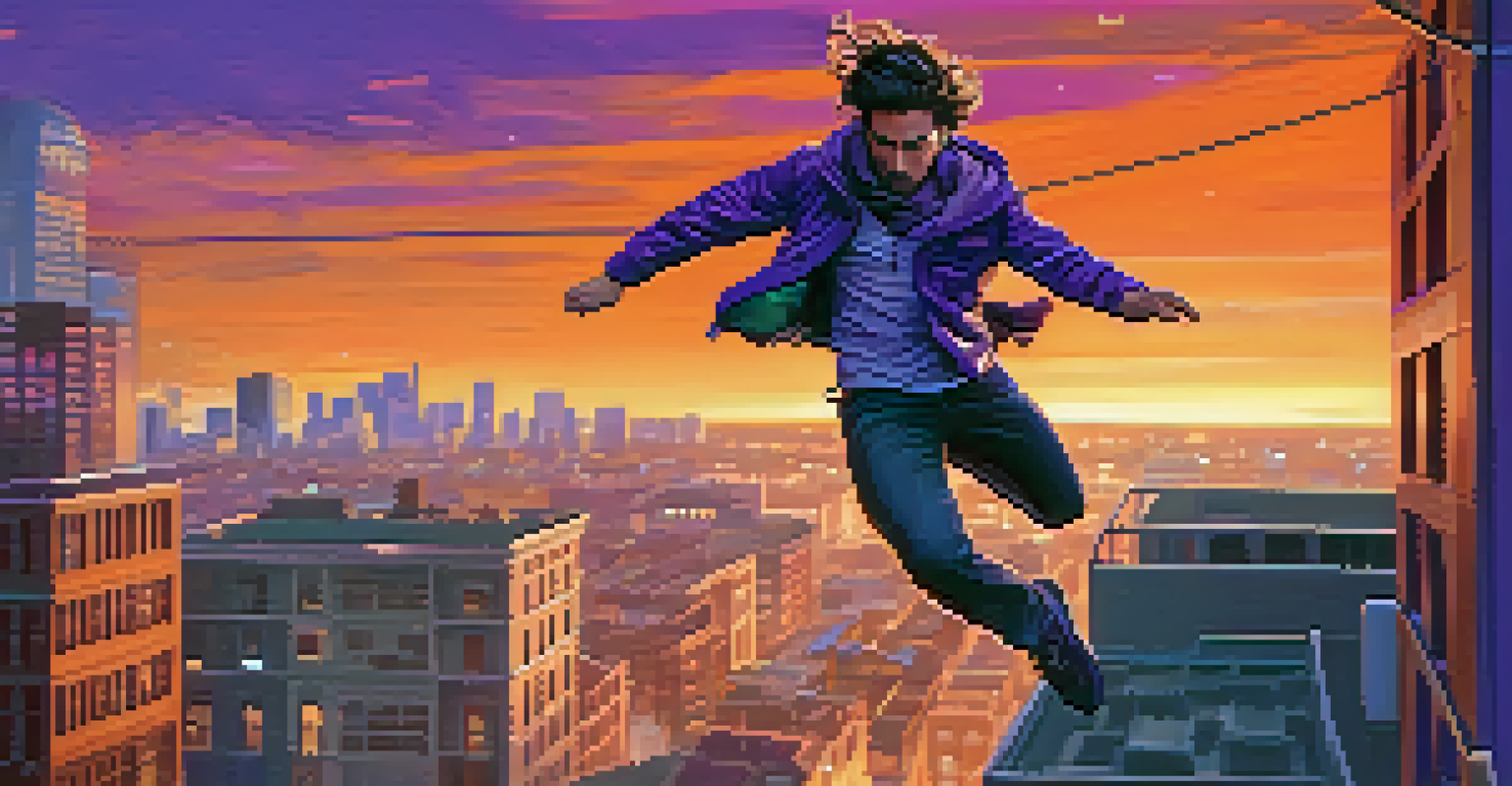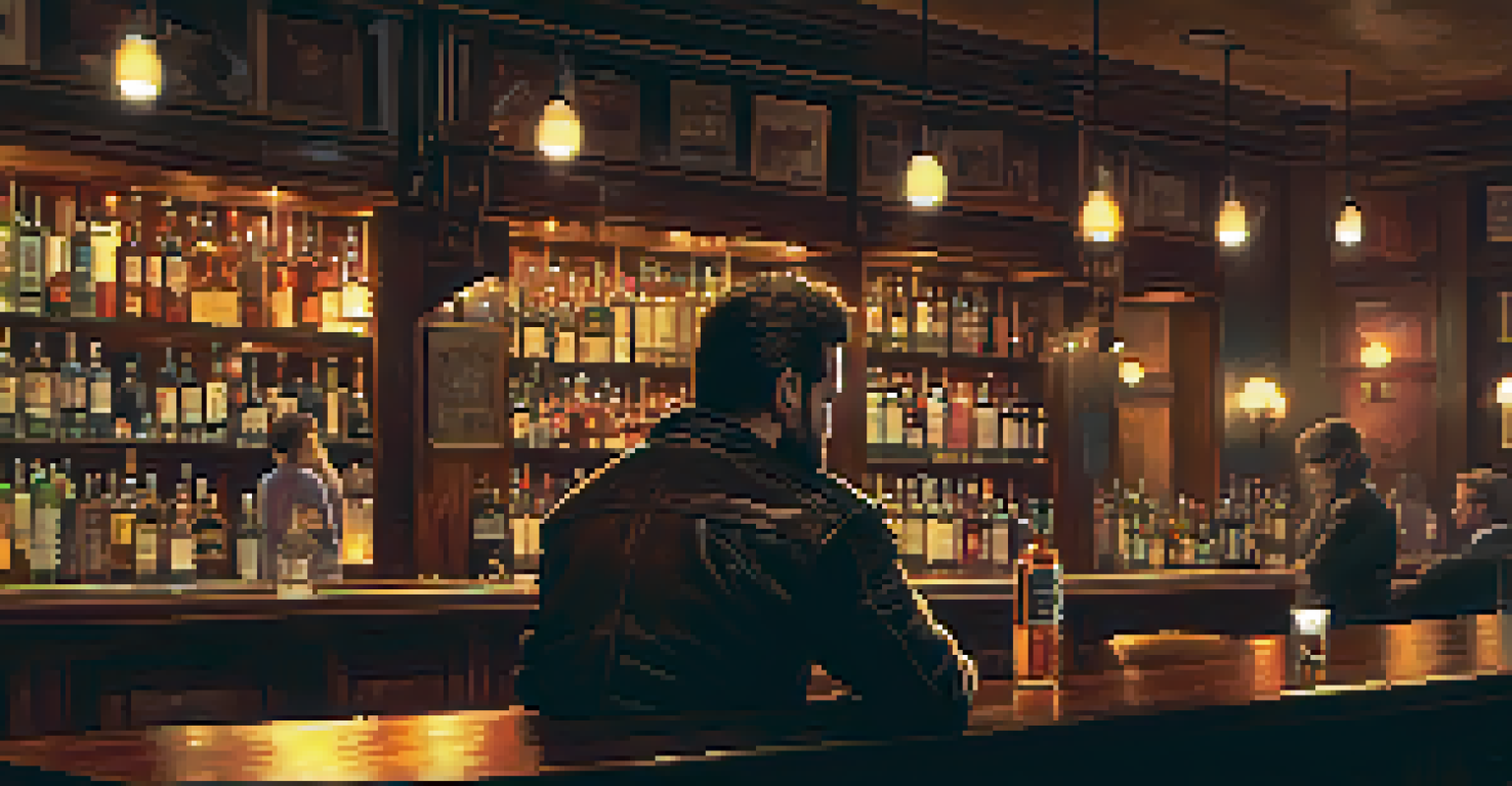Famous Antiheroes: Lessons from Iconic Film Characters

Defining the Antihero: More Than Just a Villain
Antiheroes are complex characters who often blur the lines between good and evil. Unlike traditional heroes, they possess flaws that make them relatable and intriguing. Think of characters like Deadpool or Tony Stark, who may act selfishly but also display moments of genuine heroism.
The greatest heroes are often the ones who struggle with their own humanity.
These characters often grapple with their moral ambiguity, making them fascinating to watch. Their journeys invite the audience to question what it truly means to be heroic or villainous. This complexity is what keeps viewers engaged and invested in their stories.
Ultimately, antiheroes teach us that perfection is an illusion. We can all relate to their struggles with inner demons and moral dilemmas, reminding us that it's okay to embrace our imperfections while striving for growth.
The Appeal of Flaws: Why We Love Imperfect Heroes
Flaws make characters more relatable, and that's part of why antiheroes resonate with us. They embody traits like arrogance, cynicism, or impulsiveness, which reflect our own human experiences. For instance, Walter White from 'Breaking Bad' starts as a sympathetic character, but his descent into darkness reveals the darker sides of ambition and pride.

These imperfections create a sense of authenticity, allowing audiences to connect on a personal level. Viewers often find themselves rooting for characters who mirror their own struggles, reminding us that nobody is perfect and everyone has a story.
Antiheroes Redefine Heroism
Characters like Deadpool and Tony Stark showcase the complexity of heroism, blending flaws with moments of genuine courage.
In this way, antiheroes serve as a mirror, reflecting our own flaws while offering a form of escapism. Their journeys remind us that we don't have to be flawless to be valued or to learn from our mistakes.
Moral Ambiguity: Challenging Our Perceptions of Right and Wrong
Antiheroes often operate in gray areas, challenging our understanding of morality. Characters like Dexter Morgan, who kills criminals, force us to reconsider our beliefs about justice and punishment. This moral ambiguity allows for rich storytelling that prompts audiences to think critically about ethical dilemmas.
It's not the face that makes someone a monster; it's the choices they make with their lives.
The choices these characters make can evoke a range of emotions, from sympathy to outrage. This complexity keeps us on our toes, as we navigate the ethical landscape alongside them. It’s a fascinating exploration of human nature and societal norms.
By watching these characters, we learn that life is rarely black and white. Their stories encourage us to reflect on our own values and consider the consequences of our actions, fostering a deeper understanding of the human condition.
Redemption Arcs: The Journey from Antihero to Hero
Many antiheroes experience significant redemption arcs, offering valuable lessons about change and growth. Characters like Jaime Lannister from 'Game of Thrones' showcase how personal journeys can lead to transformation. These arcs often highlight the potential for goodness within flawed individuals.
Witnessing an antihero's struggle for redemption can be incredibly inspiring. It reminds us that change is possible, regardless of past mistakes. This journey can resonate deeply, particularly for those who feel they've strayed from their own moral compass.
Redemption is Always Possible
Antiheroes often undergo significant transformations, illustrating that change and growth can emerge from even the darkest pasts.
Ultimately, these stories reinforce the idea that it’s never too late to seek redemption. They encourage us to believe in the possibility of growth and the power of second chances, both in fiction and in our own lives.
Unconventional Heroes: Breaking Stereotypes in Film
Antiheroes often break traditional stereotypes, showcasing diverse representations of heroism. Characters like Harley Quinn challenge conventional gender roles and societal expectations. Her journey from villain to antiheroine reflects a powerful narrative about self-discovery and empowerment.
By embracing unconventional traits, antiheroes broaden the definition of what it means to be a hero. They defy norms and inspire audiences to embrace their individuality. This diversity in representation encourages viewers to reconsider their own biases and assumptions.
Such characters remind us that heroism can be found in unexpected places. Their unique perspectives and experiences enrich storytelling, making it more relatable and inclusive for diverse audiences.
The Role of Humor: Lightening the Dark Themes
One of the fascinating aspects of many antiheroes is their use of humor to navigate dark themes. Characters like Tony Stark infuse wit and sarcasm into serious situations, providing comic relief while still addressing profound issues. This blend of humor and darkness makes their stories more engaging.
Humor serves as a coping mechanism for both characters and audiences. It allows us to explore heavy themes without becoming overwhelmed. When antiheroes joke about their predicaments, it creates a sense of camaraderie that draws viewers closer.
Cultural Icons Reflect Society
Antiheroes resonate with audiences by embodying contemporary struggles and societal issues, making them powerful figures in popular media.
Ultimately, this balance of humor and seriousness enriches storytelling. It reminds us that even in our darkest moments, there can be lightness and laughter, making the journey more bearable.
Cultural Impact: Antiheroes in Popular Media
Antiheroes have significantly influenced popular culture, shaping narratives across various media. From comic books to television series and films, their presence is felt everywhere. The rise of antiheroes like Rick Sanchez from 'Rick and Morty' illustrates how audiences are drawn to complex characters who challenge societal norms.
Their cultural impact extends beyond entertainment; they often reflect societal issues and personal struggles. This relevance keeps the themes alive and relatable, resonating with audiences of all ages. As a result, antiheroes have become cultural icons, embodying the complexities of modern life.

In this way, antiheroes serve as a reflection of contemporary society, highlighting our collective struggles and aspirations. They remind us that the stories we tell are deeply intertwined with our values and experiences, making them even more powerful.